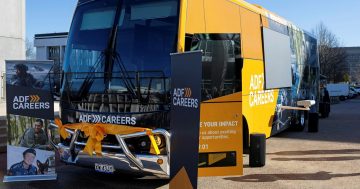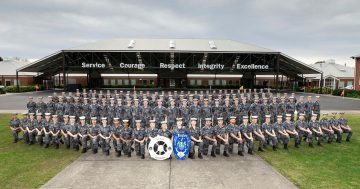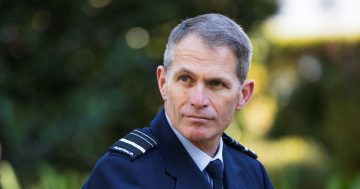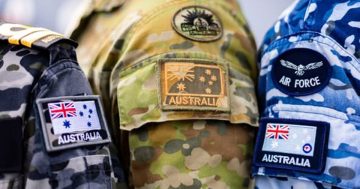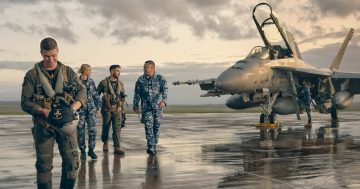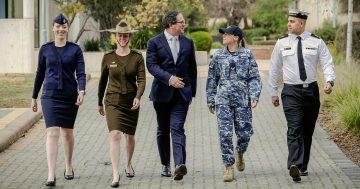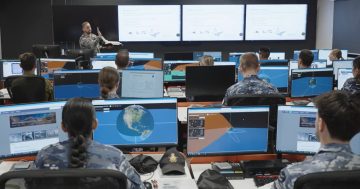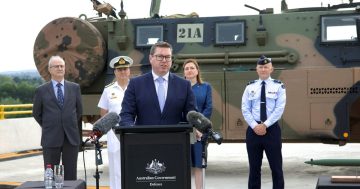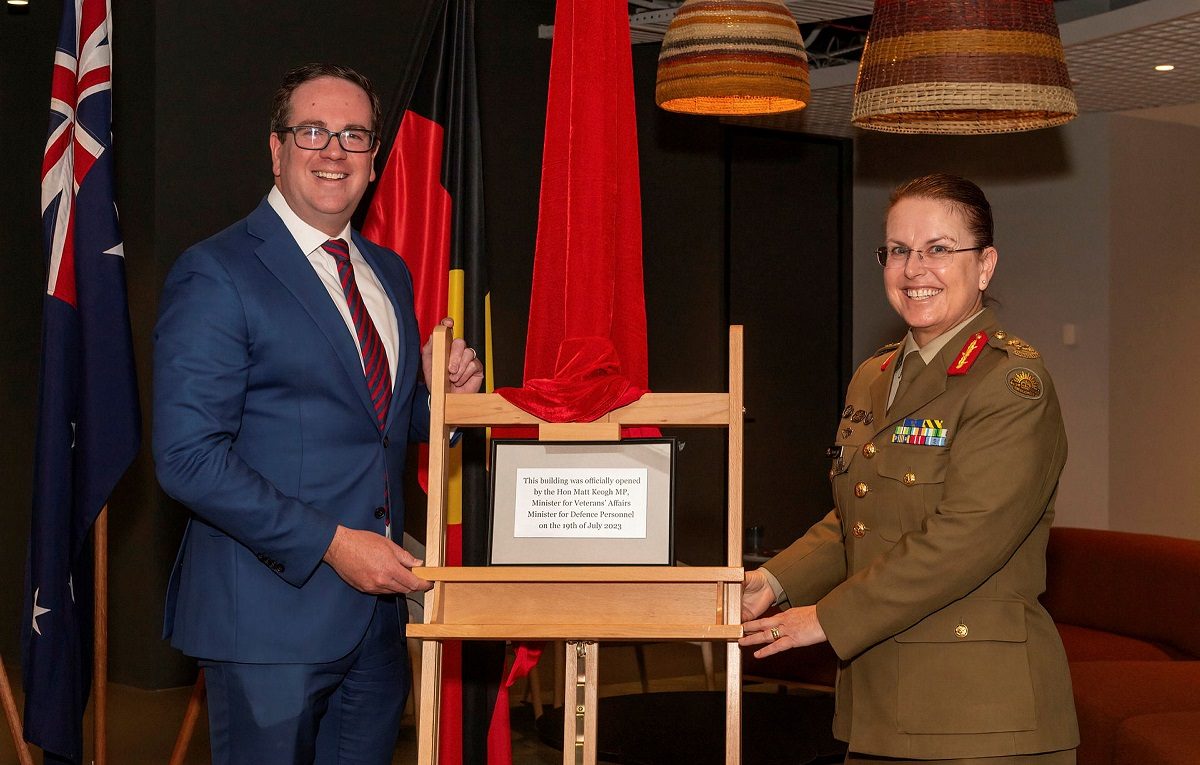
Minister for Veterans’ Affairs and Minister for Defence Personnel Matt Keogh and Chief of Personnel Lieutenant General Natasha Fox open the Melbourne ADF Careers office on 18 July. Photo: ADF.
The former Defence Jobs recruitment branding, now known as ADF Careers, has launched four new fixed and one mobile recruitment centre to be run by its new partner, recruitment agency Adecco Australia.
After telling Senate Estimates in May it will fulfil an estimated 73 per cent of its planned recruitment places for 2022/23, the rebranding and new partner will start at a distinct disadvantage as Defence strives to increase its permanent uniformed complement by more than 30 per cent over the next two decades.
Announced in October 2022, the deal with Adecco is reportedly valued at $20 million a year, and replaces a previous deal with Manpower.
A 19 July ministerial release states investing in the growth and retention of a highly-skilled workforce is a priority from April’s Defence Strategic Review (DSR) which echoed the previous government’s 2020 policy to increase the ADF’s workforce.
“The Defence Strategic Review recommends changes to policy, process, risk appetite and our approach to recruitment to be able to meet our workforce goals,” Minister for Veterans’ Affairs and Defence Personnel Matt Keogh said.
“We need an innovative and bold recruitment model that increases the speed of recruitment from application to enlistment to inspire the defence workforce of the future and grow our Defence Force.”
The fixed recruitment centres will be located in Brisbane, Sydney, Melbourne and Perth, while the mobile centre – a fitted-out bus – will visit regional and remote centres. The centres will be staffed by ADF personnel and Adecco staff.
While some observers have cited the Royal Commission into alleged war crimes in Afghanistan and other related recent controversies as a possible reason for failing to meet its recruitment targets, Defence’s other problem in attracting sufficient recruits lies with Australia’s almost full employment rate. There is anecdotal evidence of technical industries in particular paying above-average wages to attract and retain graduates and workers they have previously struggled to entice, particularly following the pandemic.
One example is with pilot retention. With airlines scrambling to return to pre-pandemic staffing levels, even junior pilots previously furloughed are reportedly being offered attractive bonuses to return to or stay with the airlines.
The RAAF conducts three Operational Conversion (OPCON) courses for its planned 72-strong F-35A fighter fleet every two years, where new pilots or pilots transitioning from other aircraft types learn to fly the F-35 and graduate as a proficient but basic Category D pilot.
An OPCON course typically needs to graduate between six and eight pilots from each course to maintain numbers in the operational squadrons and cover separations, posting cycles and promotions. But Region understands the most recent OPCON, which ended in May, graduated three new F-35 pilots.
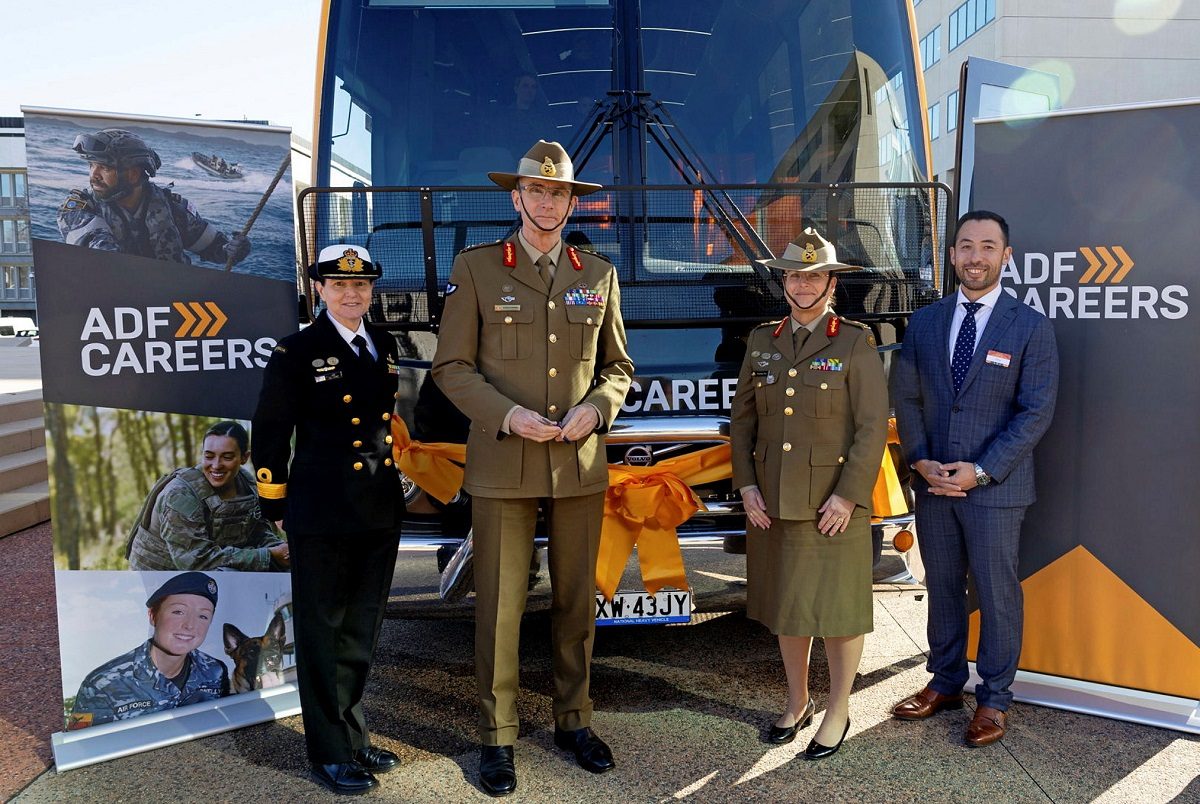
Navy Commodore Jan Wiltshire, Chief of Defence Force General Angus Campbell, Chief of Personnel Lieutenant General Natasha Fox and Adecco managing director of Defence Force Recruiting Gene Crowe at the unveiling of the mobile recruitment centre in Canberra. Photo: ADF.
As part of the Federal Government’s efforts to arrest Defence’s waning retention rates, it implemented a new bonus scheme in May and improved defence housing policies. The $400 million scheme will see defence members offered a $50,000 bonus if they sign on for an additional three years past their initial Return of Service Obligation (ROSO) period, while a review of defence housing policy was also promised.
A three-star officer was also appointed in May as Defence’s first Chief of Personnel. One of several key recommendations stemming from the DSR, Lieutenant General Natasha Fox took up the role on 5 June.
The DSR recommended “options should be developed to change Defence’s recruitment framework to improve the eligibility pool of potential applications and to align service recruitment requirements to military employment”.
In a 19 July speech to open the new Melbourne recruitment office, Minister Keogh said many people were surprised at the diverse range of roles available in Defence.
“There are more than 250 different types of roles across the maritime, land, air, space and cyber domains,” he said. “We need more sailors, soldiers and aviators… and not just in the roles people traditionally think of. We also need those who want to become health specialists, mechanics and marine technicians, engineers and electricians, data specialists and drivers, cooks and carpenters.”
In a post-speech press conference, he said: “We’re trying to make sure we are getting good gender diversity across Defence to be more reflective of our community, and it’s why we also have the specialist indigenous recruiters to engage with our indigenous communities to make sure they understand the opportunities available to them in a defence career as well.”
Original Article published by Andrew McLaughlin on Riotact.


